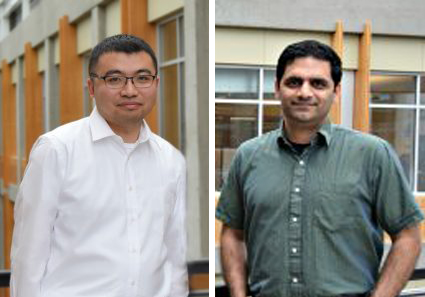A notable research advance in Brain Computer Interface (BCI) development and a University of Washington (UW) PhD student dissertation award are helping to shape 2017 into a year of accomplishments for the University of Washington Electrical Engineering Department (UW EE) and the Center for Sensorimotor Neural Engineering (CSNE).
Visvesh Sathe, a UW EE assistant professor and CSNE member, and his research team, which includes the CSNE’s Chris Ruddell and Steve Perlmutter, have discovered a way to improve BCI recording system performance by a factor of 10. The team’s work addresses challenges, such as the need for a large number of neural recording and stimulation electrodes, containing those electrodes within a relatively small space, and reducing signal noise.
In their recent paper, “A Scalable, Highly-Multiplexed Delta-Encoded Digital Feedback ECoG Recording Amplifier with Common and Differential-Mode Artifact Suppression,” Sathe and his team introduce newly developed architectural techniques responsible for the increased channel recording density compared to current state-of-the-art systems.
This advancement, along with the new system’s ability to suppress signal noise and use high precision recording to read brain signals are steps toward an ambitious goal, creating a bi-directional BCI (known as a BBCI) on a single chip, where signals flow both to and from the neural device.
While Sathe’s and his research team’s work is far from over, one of Rudell’s students is celebrating. Tong Zhang, a 2017 UW EE PhD student, was recently recognized by the UW who awarded him the 2017 Graduate School Distinguished Dissertation Award in Mathematics, Physical Sciences and Engineering for his UW EE doctoral thesis. This achievement marks the first time a UW EE PhD student has received this top dissertation award.
Visit the UW EE website for more information about this research advance and Tong Zhang.
Image:

